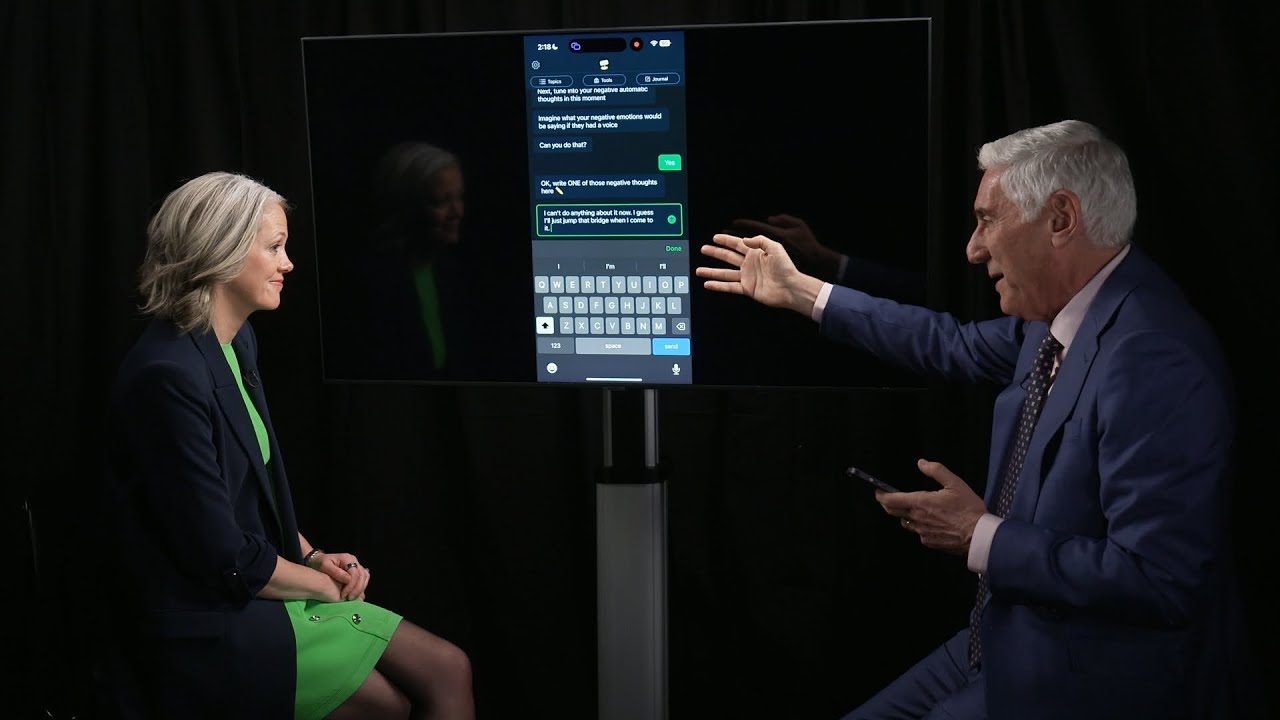AI technology, particularly in the form of chatbots, is being utilized in mental health care to provide therapy and support for individuals facing issues like depression and anxiety. While AI-driven tools like Woebot show promise in improving accessibility to mental health services, there are concerns about the limitations of technology in addressing the complexities of human emotions, highlighting the need for a balance between AI-driven solutions and human oversight in mental health care.
Artificial intelligence (AI) has made its way into various aspects of our lives, including mental health support. Chatbots driven by AI technology are being used to provide therapy to individuals struggling with issues like depression, anxiety, addiction, and loneliness. One notable chatbot, named Woebot, mimics cognitive behavioral therapy (CBT) techniques to challenge dysfunctional thoughts. The aim is to modernize psychotherapy and make mental health care more accessible to those who may face barriers like stigma, cost, and waiting lists for traditional therapy sessions.
While AI-driven chatbots like Woebot aim to bridge the gap in mental health care, they are not foolproof and should not be relied upon to detect suicidal ideation. AI technology can pick up on conversational nuances by drawing upon vast amounts of data, but there are differences between rules-based AI and generative AI. Chatbots using generative AI, like Chat GPT, may provide more open-ended responses, which can sometimes lead to inaccurate or harmful advice, as seen with a chatbot called Tessa designed to help prevent eating disorders.
The story of Tessa highlights the importance of implementing guardrails and oversight in AI-driven mental health tools to avoid harmful consequences. Researchers and developers in the field are working to refine these technologies to ensure they provide safe and effective support to users. Despite some setbacks and missteps, AI in mental health care holds promise in addressing the significant gap in access to mental health services for many individuals, with technology offering a potential solution to improve mental health outcomes.
While AI chatbots may offer convenience and accessibility, concerns remain about the limitations of technology in providing the human connection and empathy essential for therapeutic healing. The role of licensed therapists in mental health care cannot be understated, as the nuances of human emotions and experiences may be challenging for AI to fully grasp. Moving forward, balancing the benefits of AI-driven mental health tools with the need for human connection and oversight will be crucial in building public trust and confidence in these technologies.
Overall, the integration of AI in mental health care presents both opportunities and challenges. While AI chatbots like Woebot have shown promise in providing support and resources to individuals in need, ensuring the safety and effectiveness of these tools is paramount. As the field continues to evolve, there is a need for thoughtful development and regulation to harness the power of AI technology responsibly and ethically in supporting mental health and well-being.
